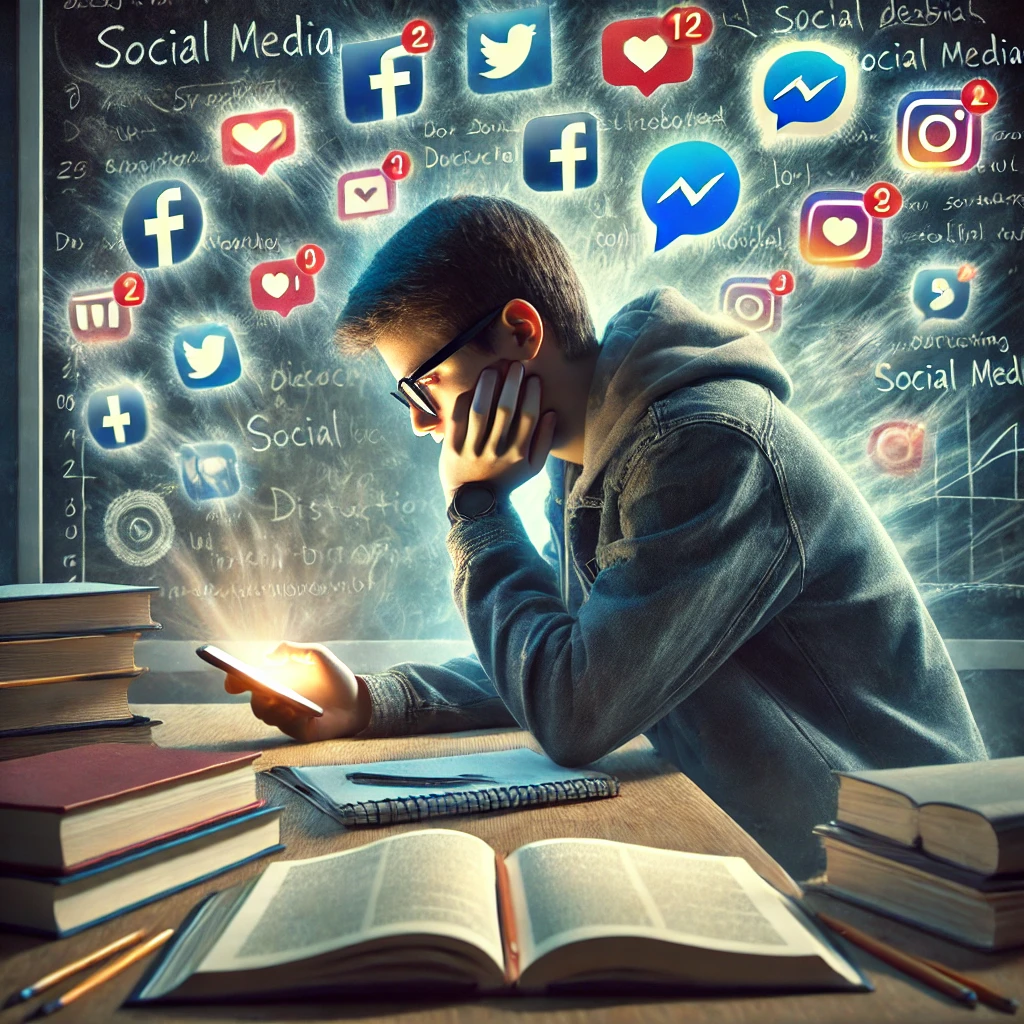✍The Effect of Social Media on Adolescent Learning and Academic Motivation ✍
In today's digital age, social media is more than just a platform for socializing—it’s also a major influence on adolescents’ lives, shaping how they learn, interact, and stay motivated academically. As teenagers navigate online spaces, they are constantly bombarded with content, interactions, and distractions that can both positively and negatively impact their educational experience.
But how exactly does social media affect adolescent learning and academic motivation? Let's explore the different ways these platforms can influence students and the balance between the pros and cons.
✍The Pros: How Social Media Can Boost Learning and Motivation✍
Access to Educational Content Social media platforms are increasingly being used to share educational resources, ideas, and knowledge. Accounts dedicated to topics like science, history, and literature can expose adolescents to new ideas and perspectives that complement their formal education.
- YouTube Channels offer free tutorials on everything from calculus to art history.
- Twitter and LinkedIn are platforms where students can follow educational influencers, researchers, and professionals who share insights, resources, and inspiration.
💡 Tip: Adolescents can curate their feeds to follow accounts that align with their academic interests, giving them continuous access to learning material beyond the classroom.
Collaboration and Peer Learning Social media allows students to collaborate with peers on school projects, share notes, and discuss academic content in real time. This peer-to-peer interaction can help students develop critical thinking and problem-solving skills.
- Study Groups on Facebook or WhatsApp can provide a virtual space for collaborative learning.
- Interactive Learning on Reddit through subject-specific forums helps students engage in debates, ask questions, and find resources.
🤔 Your Thoughts: Have you used social media to connect with classmates or discuss academic topics? How has that influenced your learning?
Increased Motivation and Inspiration Seeing others achieve academic success or participate in creative projects can inspire adolescents to set academic goals for themselves. Social media influencers who talk about their educational journeys or share study tips can motivate students to stay focused and keep working hard.
- Instagram Study Tips Accounts often post motivational quotes, productivity hacks, and study routines.
- TikTok Challenges related to academic achievements or personal growth encourage students to engage with learning in a fun and interactive way.
✍The Cons: How Social Media Can Disrupt Learning and Motivation✍
Distractions and Reduced Focus One of the most significant drawbacks of social media is its potential to distract students from their academic work. With constant notifications and endless scrolling, it’s easy for students to lose focus on their homework or studies.
- Time Spent on Social Media can take away from study time, leading to procrastination and a lack of concentration during school hours or while completing assignments.
- Multitasking on social media while studying often leads to cognitive overload, making it harder to retain information or engage deeply with academic material.
💡 Tip: Setting designated “social media-free” study times can help students maintain better focus and productivity during academic work.
Social Comparison and Decreased Self-Esteem Adolescents are at a stage where they are highly sensitive to social comparison. Constant exposure to curated, idealized images and posts on social media can lead to feelings of inadequacy or self-doubt, especially when it comes to academic performance.
- Academic Pressure to perform as well as peers who post about their high grades or achievements can lead to unnecessary stress and anxiety.
- FOMO (Fear of Missing Out) on social events or opportunities can cause feelings of isolation or lower motivation to focus on school.
Cyberbullying and Negative Peer Influence Social Media can also expose adolescents to negative experiences, such as cyberbullying or harmful peer influence, which can have detrimental effects on their mental health and academic motivation.
- Cyberbullying affects students’ self-esteem, causing anxiety, depression, and even academic disengagement.
- Peer Pressure on social media may encourage negative behaviors or attitudes toward learning, making students more likely to skip school or fall behind.
✍Finding the Balance: How to Use Social Media for Academic Growth✍
Setting Boundaries Encourage adolescents to set time limits on their social media use, particularly during study sessions or before bed, to ensure they remain focused on academic tasks.
Creating a Positive Learning Environment Schools and parents can guide students in using social media to enhance their learning, whether through educational accounts, collaborative study groups, or promoting the use of productivity apps.
Encouraging Mindful Consumption Teach adolescents to curate their social media feeds to include educational content, motivational posts, and positive peer influences, while unfollowing accounts that contribute to stress or distraction.
✍Conclusion: The Future of Social Media and Adolescent Education✍
As social media continues to evolve, its influence on adolescent learning and motivation will likely grow. By leveraging its potential as an educational tool and using it mindfully, adolescents can tap into a world of resources and inspiration that can fuel their academic success.
Join the Discussion!
- Do you think social media has had a positive or negative impact on your learning experience?
- How do you balance social media use with academic focus?Share your thoughts and experiences in the comments!
Thank you for reading. 👀





.jpg)


.png)

No comments:
Post a Comment